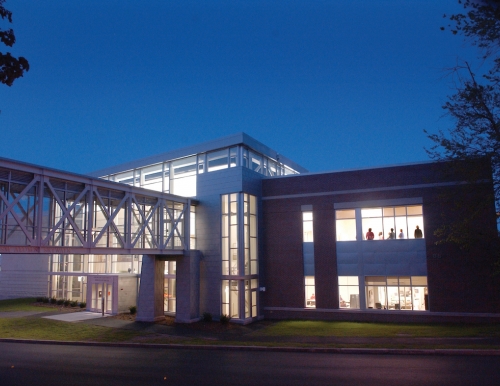
The University of Southern Maine (USM) has begun implementing its newly-announced 10th goal on equity and justice, as outlined by University President Glenn Cummings at the institution’s annual Opening Breakfast on Aug. 29.
This new goal expands upon Cummings’ previously-outlined Nine Goals for the university, which focused primarily on academic excellence, student support, enrollment, retention and financial sustainability.
Those goals are quickly being met, Cummings said, noting that the university is strong, growing and on the move. But, he said, continued growth has paved the way for a stronger commitment to diversity to be addressed.
“Four years ago when I began my tenure as President of USM, I set nine critical goals for the university,” Cummings said in a note to the university community. “However, as the university has grown – and as I have grown – I have come to realize that we need to add a tenth critical goal; a goal that focuses squarely on equity and justice.”
At the Opening Breakfast, Cummings outlined five commitments that will serve as the backbone of Goal 10:
- USM will undertake a university-wide Climate Survey;
- USM will undertake a full curriculum review;
- USM will invest in positions that focus on issues of equity and inclusion.
- USM will increase investment in learning, training and development; and
- USM will engage in a university-wide Common Read that focuses on issues of equity and justice.
Cummings also asked everyone within the USM community to re-examine their own feelings.
“I ask you to think of the journey as an internal experience, of getting closer, deeper, more compassionate and more understanding about each other. That is not as easy as it seems.” Cummings said. “It is part of the mission of this great university that every student, every staff member and every faculty member must feel that they matter, they belong and they feel at home.”
Today, USM is proud to announce that progress on these commitments is already being made.
Working with the Intercultural and Diversity Advisory Council (IDAC), the university plans to put out a Request for Proposals (RFP) by the end of October to select an organization to conduct the Climate Survey, which will be conducted this academic year.
University Provost and Vice President for Academic Affairs, Jeannine Uzzi, will be working in partnership with faculty to support curriculum reviews of every program.
The university is in the final stages of the search process for a Director of Intercultural Student Engagement, with the three finalists making campus visits this week.
USM is also in the process of creating a leadership position focused on Diversity, Inclusion and Equity. The position profile is now being built in collaboration with IDAC and community stakeholders, and a search for this position is anticipated to begin in January.
A number of training and development initiatives are currently underway, including continued grants for attendance at the Racial Equity Institute; an expansion of the academic chair development series for our academic advisors and search committees, including offering “Breaking Barriers: Equity and Inclusivity in Advising Practices” for our academic advisors; and for our search committees, “Strategizing the Search/Safeguarding Against Bias” training.

Lastly, Provost Uzzi has announced that the university’s 2019-2020 Common Read is “How to Be an Anti-Racist” by Ibram X. Kendi. All USM students, faculty, staff and board members can receive a free copy of “How to Be an Anti-Racist” starting Oct. 15 at the library on their respective campuses, in the Office of the Provost (124 Wishcamper Center) and in the OLLI Office. USM community members and friends are encouraged to watch their email for activities, reading groups, and events related to the Common Read.
Cummings said he is heartened by the USM community’s response to these commitments, and reiterated that Goal 10’s success will require all members of the university community working together.
“If we want these principles to be a fundamental and integral part of our university tapestry, the work and learning must include all of us,” he said.

